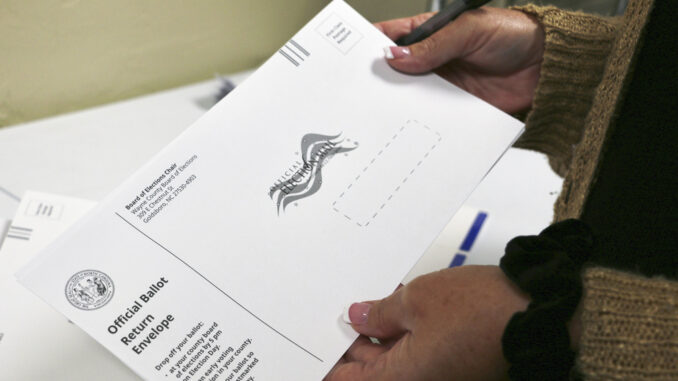
RALEIGH — More school board races will have political parties beside candidate names in the upcoming election cycle.
With the addition of the boards of education for Catawba County, Hickory City, Newton-Conover City, Pamlico County and Polk County, 53 of the 115 school districts in North Carolina will have partisan elections for school board races by 2024, per new session laws.
In addition, SL 2023-1 will make the members of the Thomasville City Board of Education elected using the nonpartisan plurality method, rather than the seats being appointed by the Thomasville City Council.
The Johnston County Board of Education will remain non-partisan under SL 2023-147. The law also dictates staggered four-year terms.
Also, Session Law 2023-41 places a referendum on the 2024 ballot in Alexander County to alter board of education races from nonpartisan to partisan.
The 53 districts that will have partisan elections for school board races include: Alleghany, Anson, Ashe, Beaufort, Bladen, Brunswick, Burke, Cabarrus, Caldwell, Carteret, Catawba, Cherokee, Clay, Cleveland, Craven, Dare, Davie, Duplin, Elkin, Graham, Greene, Guilford, Harnett, Henderson, Hickory City, Hyde, Iredell-Statesville, Jones, Lee, Lenoir, Lincoln, Madison, McDowell, Mitchell, Mount Airy, New Hanover, Newton Conover, Onslow, Pamlico, Pender, Polk, Rockingham, Rutherford, Stanly, Stokes, Surry, Swain, Transylvania, Union, Vance, Washington, Winston-Salem/Forsyth, and Yancey.
A little over a decade ago, in 2013, only 10 school boards in the state held partisan elections.
During the 2022 election cycle, 83 of the 115 school districts had board of education races with a total of 290 board seats up for grabs statewide. Out of those 83 districts, 41 were partisan races.
During the 2020 election cycle, Republicans ended up sweeping 20 of the 41 partisan races while Democrats only swept four. Of the 290 seats, 137 were partisan seats and Republicans won 103 of them, or 75%, whereas Democrats won 34, or 25%.




